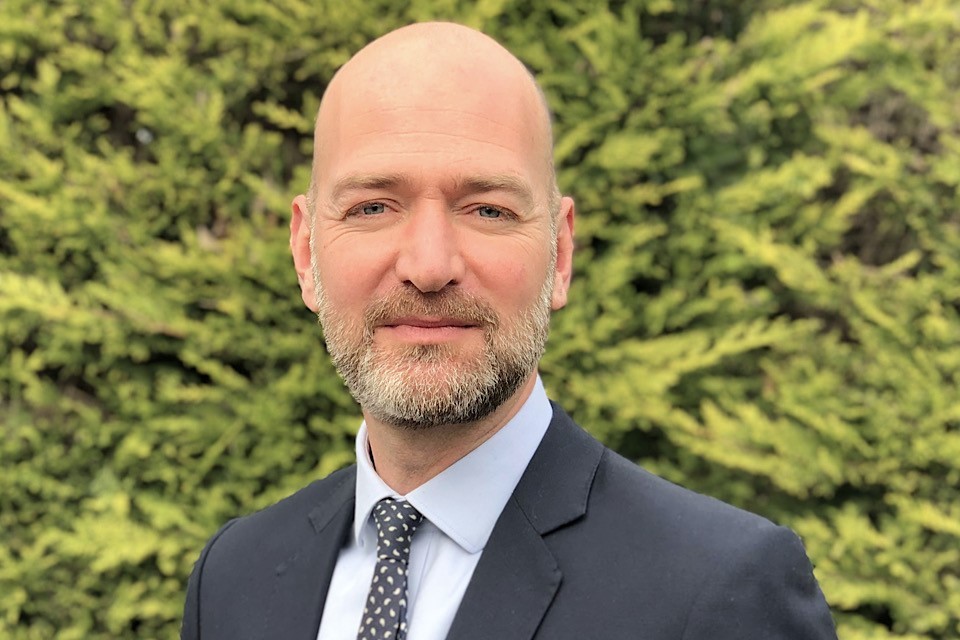The Battle of Imphal 70th anniversary commemorations
Transcript of a speech by Scott Furssedonn-Wood, British Deputy High Commissioner to Eastern India at the closing ceremony of the Battle of Imphal 70th anniversary commemorations.

Your Excellency the Governor of Manipur; Honourable Chief Minister; distinguished guests; ladies & gentlemen.
It is a great honour to represent the United Kingdom here today.
The battle that raged in the hills and valleys of Manipur - and in the skies above them - between March and July of 1944 has rightly been recognized as a turning-point of the Second World War and one of the greatest battles of all time.
The scale and intensity of the battle was truly epic: 200,000 soldiers and airmen - British, Indians, Japanese, Americans, Australians, Canadians, New Zealanders and others - fought in some of the harshest conditions of the war. The casualties sustained give us some indication of the ferocity of the fighting: 17,500 British & British Indian soldiers were killed or wounded; Japanese casualties reached nearly 54,000.
There were outstanding acts of individual bravery. 5 Victoria Crosses (VC) - the highest and most prestigious award for gallantry in the face of the enemy that can be awarded to British and Commonwealth forces - were awarded for action at Imphal.
One went to 19 year old Abdul Hafiz who on 6 April 1944 just north of here, was ordered to attack with his platoon an enemy position, the only approach to which was across a bare slope and up a steep cliff. Hafiz led the assault, pressing on in the face of relentless machine-gun fire. He was fatally wounded, but had succeeded in routing an enemy vastly superior in numbers and capturing their position. For his actions Hafiz became the first Muslim to be awarded the Victoria Cross in the Second World.
Another Victoria Cross went to Hanson Turner, a 33 year old acting sergeant in the 1st Battalion, The West Yorkshire Regiment. He was awarded the VC for his actions on 6/7 June 1944 in Manipur when he - “single-handedly” and with “doggedness and spirit of endurance of the highest order” as the official citation reads - held off enemy attacks overnight while his comrades moved to safety. Hanson went back five times for more grenades, and on the sixth occasion, still singlehanded, he was killed.
Both Hafiz and Hanson lie buried among their comrades in the two beautiful Commonwealth War Graves cemeteries here in Imphal, which are so immaculately maintained, and which we had the privilege of visiting yesterday. Three other Victoria Cross winners at Imphal - all Gurkhas - survived the war.
For every well-documented account of extraordinary gallantry there are, of course, countless more stories of individual struggle, suffering and sacrifice which whilst never told, were nonetheless fundamental to what happened here. Soldiers and airmen - on all sides - hundreds and thousands of miles way from those they loved, experienced in Manipur something they could never have imagined and which, for those who were lucky enough to return home, stayed with them for the rest of their lives.
For the people of Manipur, all of this was happening in their home, on their land. Many Manipuris fought bravely, of course. We were hugely privileged to meet some veterans here yesterday. But countless more suffered from the loss of their property, from dislocation and from the terrible traumas of war.
Conflict is a complicated thing. The complexity of interlocking and often contradictory perspectives means that a definitive understanding of events can often be elusive. But there is one simple and irrefutable truth about what happened here: that on all sides there was tremendous suffering, and that on all sides there was great bravery. And because of that, what happened here in those months of 1944 was, and will forever be, a shared experience between the nations and the people who took part. It is an experience shared too with the Manipuris whose land will always be sacred to the memory of those who were lost here.
It is in honour of that shared experience that we have all gathered here this weekend. That, seventy years on, British, Americans, Japanese, Australians, and Indians can stand here together in friendship - as guests of the people of Manipur - is tremendously significant.
Over the seventy years that have passed, our nations have worked together for global security and for our shared prosperity. This has been possible, not because we have forgotten the events of 1944 but because we remember them and know that they must never be repeated.
In the war cemetery yesterday, as we laid our wreaths, it was very moving to have with us those Manipuri veterans of the Burma campaign. They have all now, of course, grown old as their comrades resting in that cemetery did not have the opportunity to do. Sat just a few yards from them was a group of young people, students from a local school. The events of 1944 were many decades before they were born. But the significance of their presence - of their understanding of what happened in their land and their appreciation of the peace and friendship between our countries that has followed - cannot be overstated.
For as long as current and future generations know about and understand what happened here in 1944, the shared experience of Imphal will continue to shape our shared future for the better.
It is to remember this shared experience, to honour our shared loss and to celebrate our shared peace that we have gathered here this weekend. I would like to thank the organisers for bringing us here and the people of Manipur for making us so welcome in their beautiful land.
Thank you very much